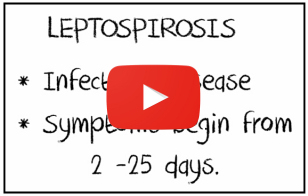Water Safety
Using inland water for recreational purposes is never risk free and it is certainly not clean enough for us to swallow without running the risk of getting an infection. The chances of being infected by a serious water-born infection are very low, but knowing how you can reduce the health risks even further, what to do if you think you’ve got an infection, and what illnesses exist.
Although this advice relates to British inland waters, similar advice applies if you take part in recreational water activities abroad.
If you are in contact with a fresh canal, pond or river water, then the following simple precautions can reduce any health risk:
Always assess the risk before using a particular stretch of water for your proposed activity. For example, consider whether heavy flooding which has resulted in water running off fields used for grazing animals into the water means that the risk of getting water-borne infection from your particular water activity is too high. If you are unsure the water is safe enough, seek advice from organisations providing information on your activity.
- Never drink water from rivers, canals or lakes.
- Wash or shower promptly after recreational water activities.
- After taking part in recreational water activities, wash hands thoroughly before handling or preparing food.
- Cover cuts and abrasions (including blisters) with waterproof dressings.
- Wear suitable footwear when in the water to protect the feet from cuts and abrasions.
- Wash and thoroughly dry any wet clothing before you wear it again.
- Do not splash river, lake or canal water onto your face to cool down.
- Do not swim, water ski, surf or boat in areas where the water is discoloured or where you see foam, scum or mats of algae on the water.
What to do if you think you are becoming ill:
If you become ill after being involved in any recreational water-related activity, you will probably recover without the need for treatment. Get plenty of rest and drink plenty of fluids. Taking over-the-counter medicines may relieve some of your symptoms. However, if your symptoms persist or are severe, you have other medical conditions, or if you’re worried about illness in a child, seek health advice and describe the type of water-related activity you have been involved in.
What illnesses might you get?:
Gastro-intestinal illness
Many organisms that cause gastro-intestinal illnesses (eg, Norovirus, Salmonella and Cryptosporidium) are commonly found in rivers, lakes and canals. The organisms usually only cause illness when they are found in high concentrations. Symptomscan include severe abdominal pain, diarrhoea and vomiting.
Blue-Green algae – Cyanobacteria
Blue-green algae grow in any type of water and can sometimes be seen as an ‘algal bloom’. The blooms often form during mid to late summer and can produce toxins that are poisonous to humans. Toxins can cause skin rashes, hives, blisters, joint/muscle pain, severe abdominal pain and diarrhoea and vomiting but cannot be passed from person to person.
Weil’s disease – Leptospirosis
There are between 50 and 70 cases of Leptospirosis in England and Wales each year, and although the disease is rare, it does kill one or two people each year. Leptospirosis is caught by coming into contact with the urine of infected animals, mainly rodents, cattle and pigs. It is most commonly found in stagnant water, water that is next to farm land and any water where rodents are common. The organism can enter the body through cuts or abrasions on the skin, or the lining of the mouth, nose or eyes. Infection with Leptospirosis can be very mild and cause no symptoms at all, or cause a flu-like illness. A more serious form of the disease is called Weil’s disease. Symptoms of Leptospirosis usually develop between 2 and 25 days after infection, although in rare cases can be as short as two or three days or as long as 30 days. If diagnosed early, Leptospirosis is readily treated with antibiotics.


